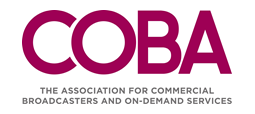Changing prominence rules risks damaging UK kids TV
June 11 2018
FOR IMMEDIATE RELEASE
Changing “linear” TV prominence risks harming investment in UK children’s programmes
In response to calls today by the BBC and Channel 4 for greater prominence for their digital services, the Commercial Broadcasters Association (COBA) has warned that any future intervention should not include changes to traditional “linear” TV as doing so could damage much-needed investment in UK children’s programming.
COBA members in the multichannel sector last year invested more than £23m in first-run, UK-made children’s programming, representing one of the biggest sources of investment in home-grown kids’ content outside the BBC. But forcing them to move their traditional linear channels to worse positions on the TV programme guide, so that BBC children’s channels can take their places, would reduce audiences for commercial channels, damage their ability to generate a return on their investment, and so reduce their ability to invest in new programming.
Uniquely, the BBC is not dependent on its position on the TV guide to support its investment in content, as it has licence fee funding, meaning the net effect of changing linear regulations would be to damage overall investment in UK kids programming. This would come at a time when UK-made children’s content is widely seen as facing a crisis – Ofcom is currently reviewing the provision of children’s content and the Government has earmarked £60m in public funding to support children’s production.
To be clear, COBA’s warning today relates to changing the rules governing the prominence for linear channels on traditional TV, not on-demand services that are available on digital platforms.
In linear television, the BBC children’s channels are clearly performing successfully (top in their respective demographics) and do not require further prominence. Furthermore, COBA members are heavily regulated as linear broadcasters and provide UK children with content that is not only much-loved, but also safe.
Adam Minns, COBA’s Executive Director, said:
“Investment in UK-made children’s content by multichannel broadcasters should not be taken for granted, particularly given declining commissions from Public Service Broadcasters and growing competition from online services. As broadcasters, COBA members are heavily regulated, they provide a safe environment for UK children, and they invest their own money in home-grown content. The net result of moving BBC channels up the TV guide and commercial channels down will be less investment in British children’s TV.”
- COBA members invested £15.6m a year on average over the last three years in new UK children’s content (2015 £7m; 2016 £18.4m; 2017 £23.5m).
- The investment is notable for including a high proportion of funding from international channels operated by COBA members, highlighting how many COBA members provide valuable overseas investment for UK production. Of the £15.6m, 74% comes from non-domestic channels related to the UK broadcaster.
- 2018 promises to be another significant year for investment, with major productions including Disney’s 101 Dalmatian Street and Sky’s Moominvalley already greenlit.
The investment includes a range of UK-made programmes that are shown across pay-TV channels, free-to-air, on-demand and online. Over the last three years, it includes such programmes as Cartoon Network’s BAFTA-winning animation The Amazing World of Gumball, currently in production on its sixth series; Disney’s First Class Chef, which aims to promote healthy cooking;; and Sky’s factual commission Ocean Rescue: Dive In & Do It, part of the broadcaster’s Ocean Rescue campaign.
Many of these shows are hugely popular with UK audiences. Disney’s UK drama The Lodge recorded the channel’s biggest ratings for a series premiere in over four years, and has been aired in over 100 countries worldwide including the US and Canada. Cartoon Network’s UK animation The Amazing World of Gumball regularly reaches more than one million children in the UK, and is a top performing show globally.
The BBC children’s channels are already performing successfully and do not need more prominence to reach audiences. The BBC itself told the Culture Select Committee that ‘children’s awareness of [its] children’s channels and digital channels is very high and CBeebies and CBBC are the first place they go.’ The BBC already has prominence for its linear channels, as well as the licence fee and cross promotional advantages with its other services and magazines.
Adam Minns added:
“The debate over the future prominence of public service broadcasters in the online world should not be conflated with linear television broadcasting, and end up inadvertently damaging children’s TV. The real issue facing the BBC is not its place in the linear world, but its relevance in the online space, which is a challenge that all linear broadcasters share.”
For further information please contact: Adam Minns, COBA Executive Director, adam@coba.org.uk or 07557258400
COBA is the industry body for multichannel broadcasters.
@COBATVUK
Notes
- Ofcom children’s content review looks at the range of UK children’s programming provided: https://www.ofcom.org.uk/consultations-and-statements/category-2/childrens-content-review
- The BBC gave evidence to MPs on the Culture, Media & Sport Committee about its children’s channels in 2013. See response to Question 116: https://publications.parliament.uk/pa/cm201314/cmselect/cmcumeds/730-i/131022.htm
